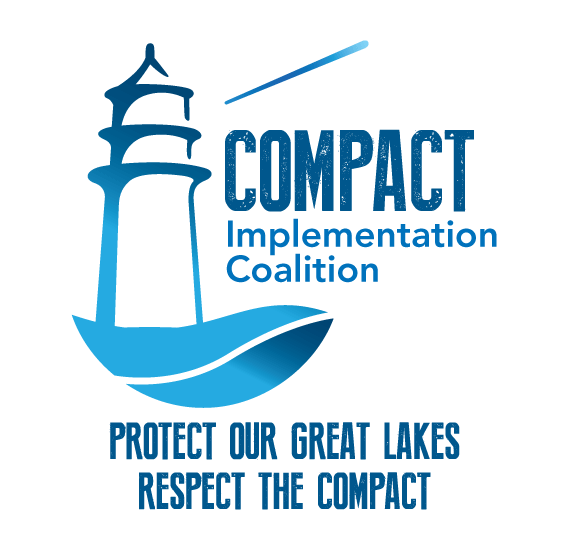Wisconsin city wants to pump its drinking water from Lake Michigan →
Wisconsin city wants to pump its drinking water from Lake Michigan - Michigan Radio, December 15, 2015
Author: Rebecca Williams
Waukesha wants to build a pipeline to the Great Lakes.
The city is in southeast Wisconsin, 17 miles from Lake Michigan. It has a radium problem in its groundwater supply.
Waukesha wants to fix its drinking water problem by pulling water from Lake Michigan.
Radium occurs naturally, but it’s a carcinogen.
Dan Duchniak, general manager of the Waukesha Water Utility, says as the city’s groundwater supply has been drawn down, it’s made the high radium concentration worse.
“And ultimately the radium exceeded the federal drinking water standard and we are now under a court order to come into compliance with that, and the means by which we are going to do that is to develop a new water supply,” he says.
The city has to come up with a permanent solution for its radium problem by 2018.
Duchniak says Waukesha can use Great Lakes water without harming the lakes.
The city wants to divert 10.1 million gallons a day from Lake Michigan in the beginning, and up to 16.7 million gallons a day by 2050.
They’d treat the water, and return it.
The Great Lakes Compact
But Waukesha can’t have any water unless all eight Great Lakes governors say it’s ok.
That’s because of something called the Great Lakes Compact. The compact bans water diversions.
But there are a few exceptions. Waukesha is in a county that straddles the Great Lakes basin line, so it’s allowed to ask for water.
In an email statement, Dave Murray, press secretary for Governor Rick Snyder, says:
Protecting the Great Lakes is Job One in Michigan. The Wisconsin DNR’s notice of intent to file a proposal to draw water from Lake Michigan is the first step in a long process meant to ensure responsible use of our state’s most precious resource. Should Wisconsin move forward with filing a proposal, there will be an extended period for public comment. We’ll work with our regional partners in the Compact Council and and make sure Michiganders have a voice as we identify a solution that will preserve and protect our lakes for years to come.
Listen and read the complete story here.
